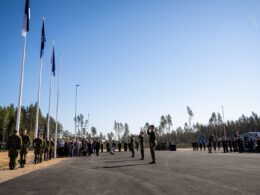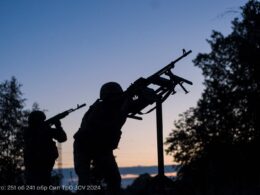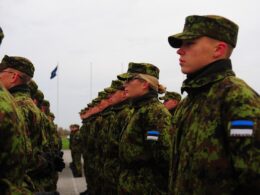On 13 February, Estonia’s Foreign Intelligence Service warned that Russia is poised for a military confrontation with the West within the next decade, suggesting that a counter build-up of armed forces could serve as a deterrent, Reuters reports.
More Western officials caution of a Russian military threat to NATO's eastern flank, saying that Russia won't stop in Ukraine and urging Europe to bolster defenses.
The Estonian intelligence service chief, Kaupo Rosin, cited Russian plans to double forces along its border with NATO members Finland and the Baltic States of Estonia, Lithuania, and Latvia as the basis for the assessment.
"Russia has chosen a path which is a long-term confrontation ... and the Kremlin is probably anticipating a possible conflict with NATO within the next decade or so," Kaupo Rosin told reporters at the release of Estonia's national security threats report, according to Reuters.
Rosin deems a Russian military attack in the near future as "highly unlikely," attributing this partly to Russia's troop commitments in Ukraine and the potential deterrence of matched forces in Europe.
He emphasizes that readiness significantly reduces the likelihood of such an attack. Following Russia's annexation of Crimea in 2014, Estonia and the Baltic States have boosted military spending to over 2% of their GDPs, while NATO allies have bolstered their presence in the region. Germany aims to deploy 4,800 combat-ready troops by 2027, marking its first permanent foreign deployment since World War II, indicating a shift in NATO's approach to counter the Russian threat.
Rosin anticipates no significant Russian advances in Ukraine before its presidential election in March, considering the substantial mobilization required for such an endeavor.
Read also:
- BILD: NATO plans the largest exercise since Cold War, involving 90,000 soldiers, to deter Russia
- Borrelll: Russian invasion of Ukraine is a threat to Europe
- Russia’s war: an attack on Europe
- Why EU security is under threat without Ukraine in NATO
- Is Moldova the next Ukraine? Nation battles Russian hybrid warfare amid EU bid




